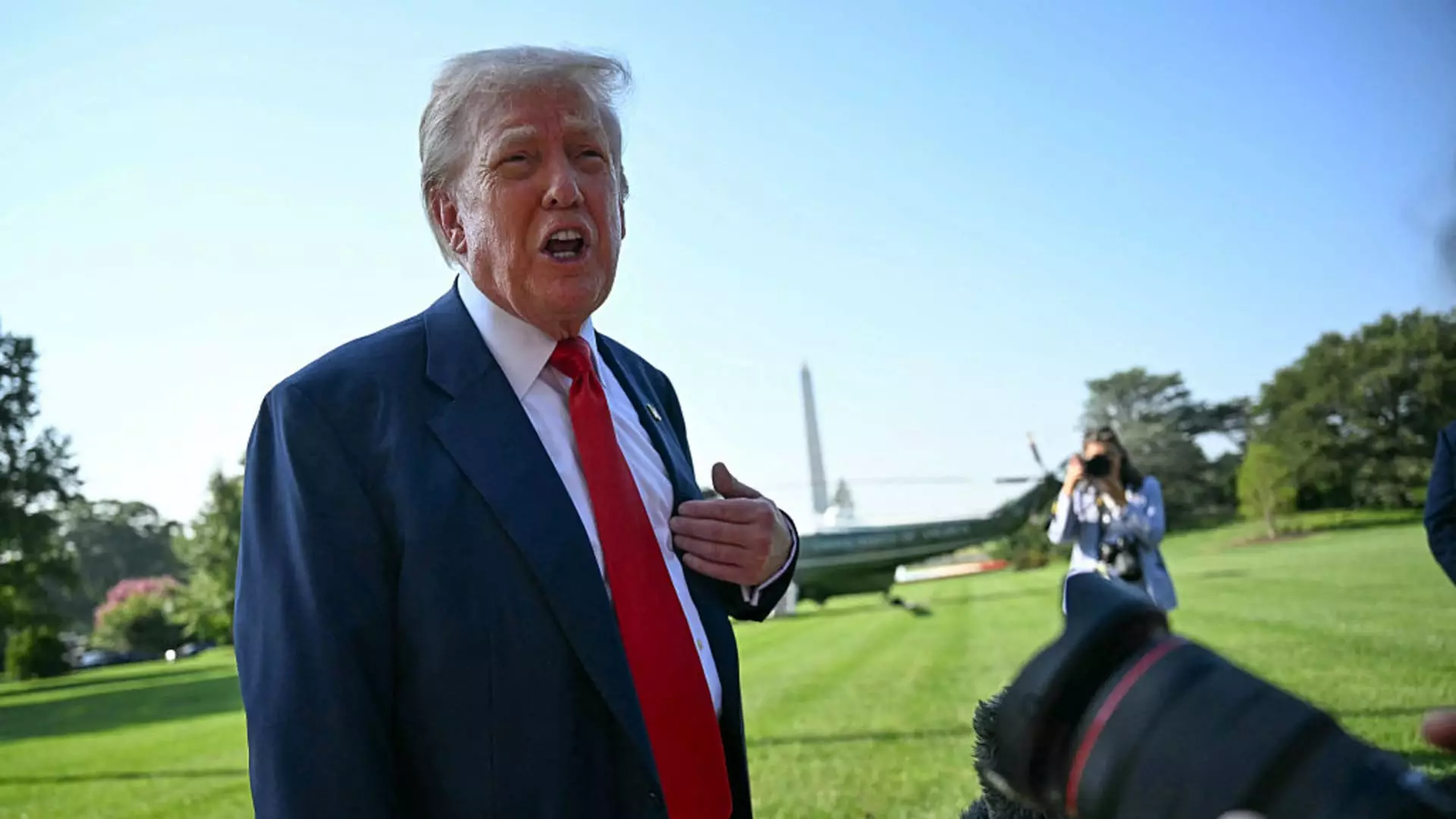At the intersection of politics, wealth, and scandal lies a disturbing yet persistent narrative: the powerful often evade accountability under the guise of privilege and influence. Donald Trump’s recent dismissive remarks about Jeffrey Epstein exemplify this dangerous tendency. Despite clear associations, Trump dismisses questions, redirecting attention towards other elite figures such as Bill Clinton and Larry Summers. This pattern reveals a disturbing reality where social ties, rather than legal facts or moral considerations, dictate how accountability is perceived or avoided. When the powerful shroud themselves in denial or scapegoating, the justice system’s integrity is undermined, casting doubt on whether true accountability is ever achieved for the most privileged.
The Trump response underscores a broader issue: the refusal to confront uncomfortable truths about wealth and power. Instead of acknowledging possible complicity or even merely considering transparency, the focus remains on deflecting scrutiny. Such behavior fosters a cycle where elites are shielded by silence, and the victims are left unheard. The selective attention—highlighting Clinton or Harvard associates—serves only to obscure the broader structural failures that enable and perpetuate abuse within elite circles. This pattern not only erodes public faith in justice but also endorses the myth that the truth is negotiable when it involves influential figures.
Justice for the Marginalized or a Political Play?
The case of Ghislaine Maxwell exemplifies the complex dynamics at play within the justice system when confronting such high-profile allegations. Maxwell’s ongoing imprisonment, while seemingly a step toward accountability, becomes clouded with skepticism about fairness and motives. Her attorney’s claims of unfair treatment and her portrayal as a scapegoat reveal an unsettling tendency: the powerful’s narrative of injustice as a shield to deflect broader investigations.
The public discourse around Maxwell and Epstein often swings between outrage and conspiracy. On one side, there is genuine concern about sexual exploitation and trafficked victims—voices that are often drowned out by accusations of a political or media-driven witch hunt. On the other, defenders argue that Maxwell and Epstein are mere symbols, sacrificing scapegoats for the sake of headline-grabbing justice. This dichotomy distracts from the essential question: How can society reliably uncover and punish systemic abuse that reaches into the corridors of power? In this glare of media spectacle, genuine reform becomes secondary to spectacle, and victims’ voices remain on the margins.
The Limits of Legal and Political Will
The recent hesitations and irregularities in the unsealing of Epstein-related documents highlight a systemic reluctance to confront the full extent of complicity among powerful individuals. Despite promises from senior officials to disclose evidence, the withholding of files signals a prioritization of political convenience over transparency and justice. This ongoing concealment fosters a culture of impunity, where the truth is delayed, diluted, or entirely suppressed.
Furthermore, Trump’s suggestion that he has “nothing to do” with Epstein—and his vague possibilities of pardoning Maxwell—reveal how proximity to scandal often grants immunity. It illustrates a core flaw: the legal system’s dependence on political will, which can be easily thwarted by those with enough influence. The endorsement of such immunity nurtures an environment where privilege trumps morality, making the pursuit of justice an ongoing battleground fraught with bias. It also underscores a critical failure: the justice system’s inability to operate independently from political and social power dynamics.
Reevaluating the Path Toward Genuine Accountability
Real progress in tackling high-level abuse must go beyond superficial investigations and delayed disclosures. It demands a profound cultural shift—one that challenges corruption, elitism, and silence. Society must demand not only that justice is done but that it appears to be done—transparent, unwavering, and rooted in the acknowledgment of systemic flaws.
Holding powerful individuals accountable is a moral imperative that transcends political divides. It requires fearless investigation and unwavering commitment from institutions, regardless of who is implicated. Only then can we dismantle the illusion that wealth and influence afford immunity from justice. Until the system is willing to confront its own complicity, true accountability remains an elusive goal—an aspiration that, more often than not, is sacrificed on the altar of privilege.

Leave a Reply